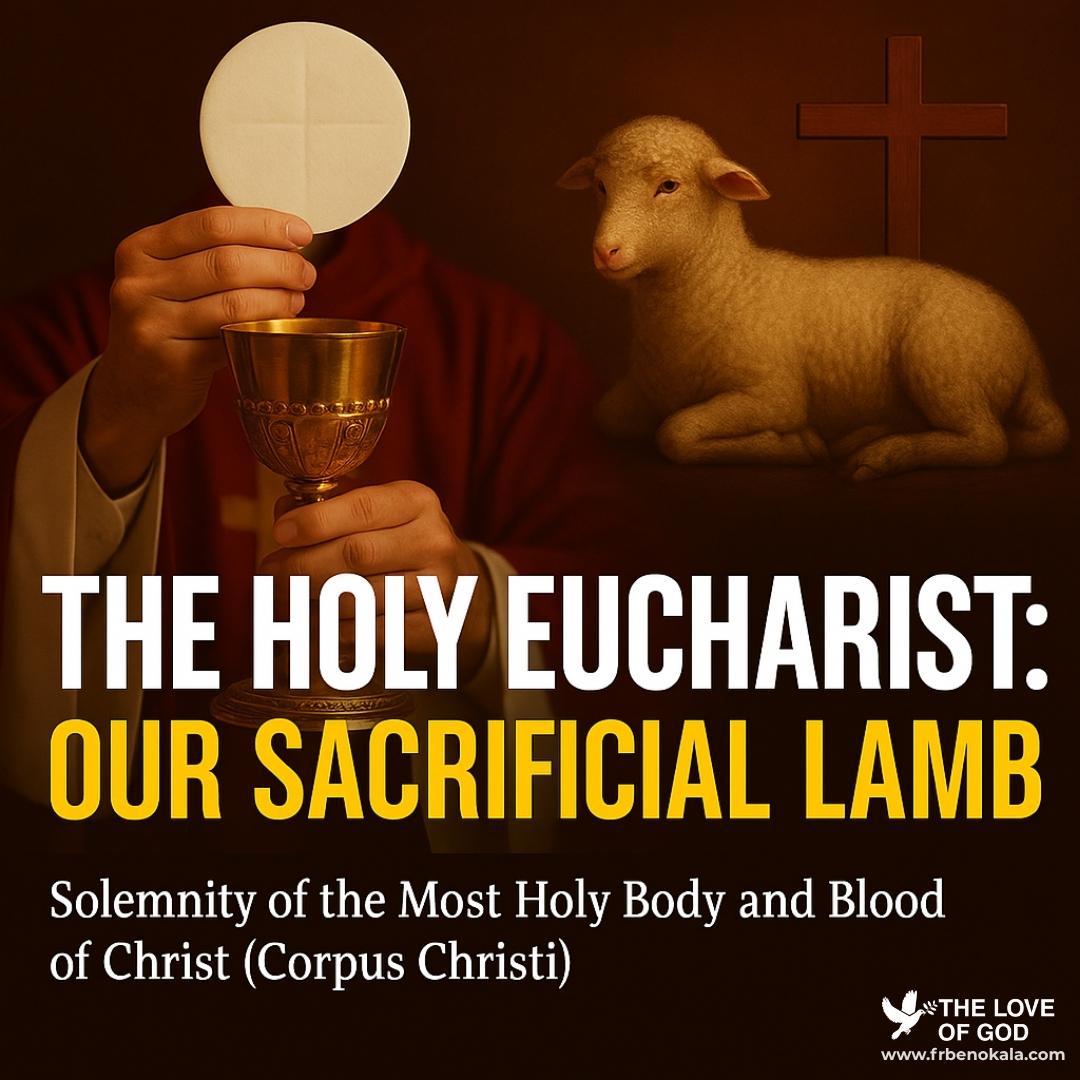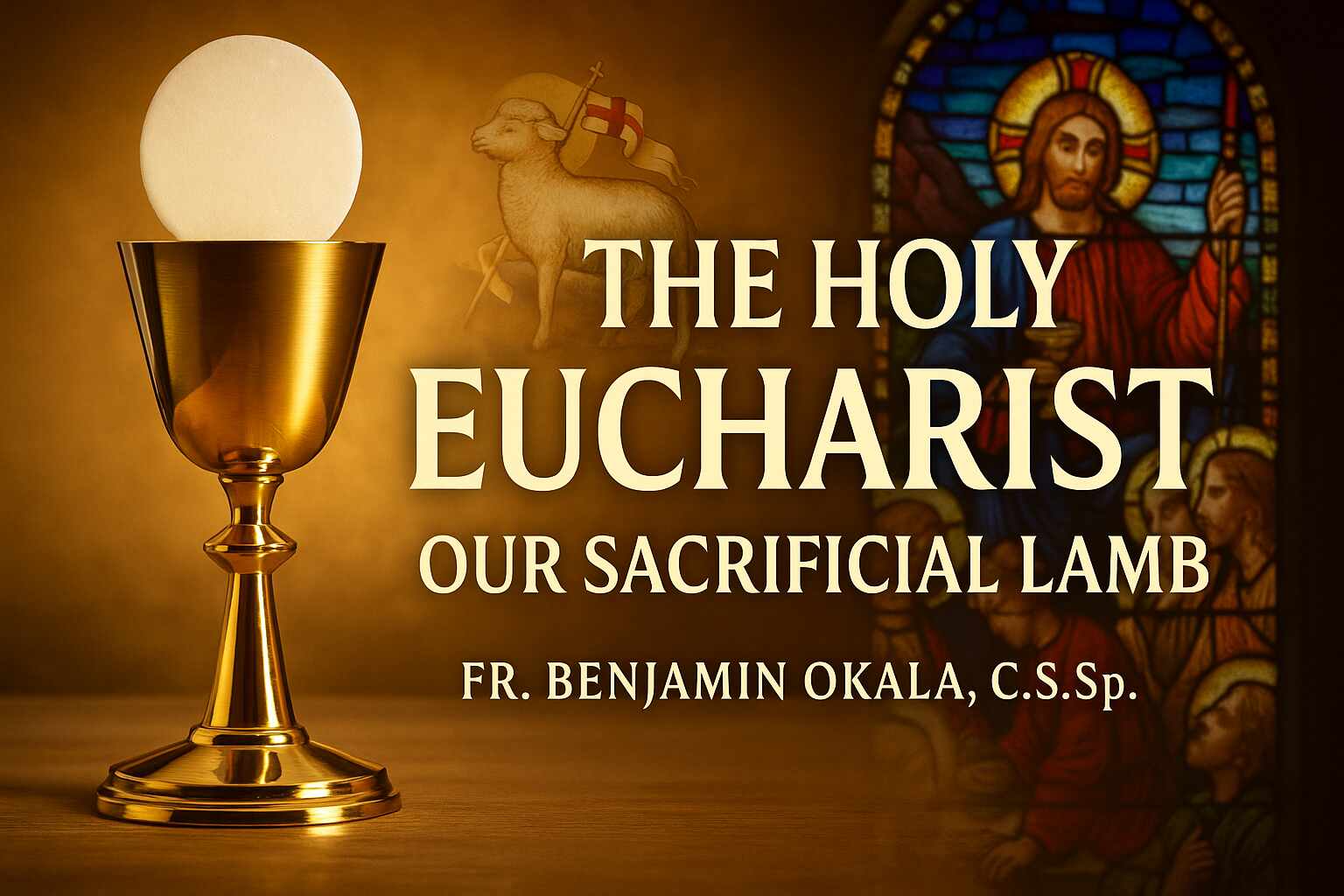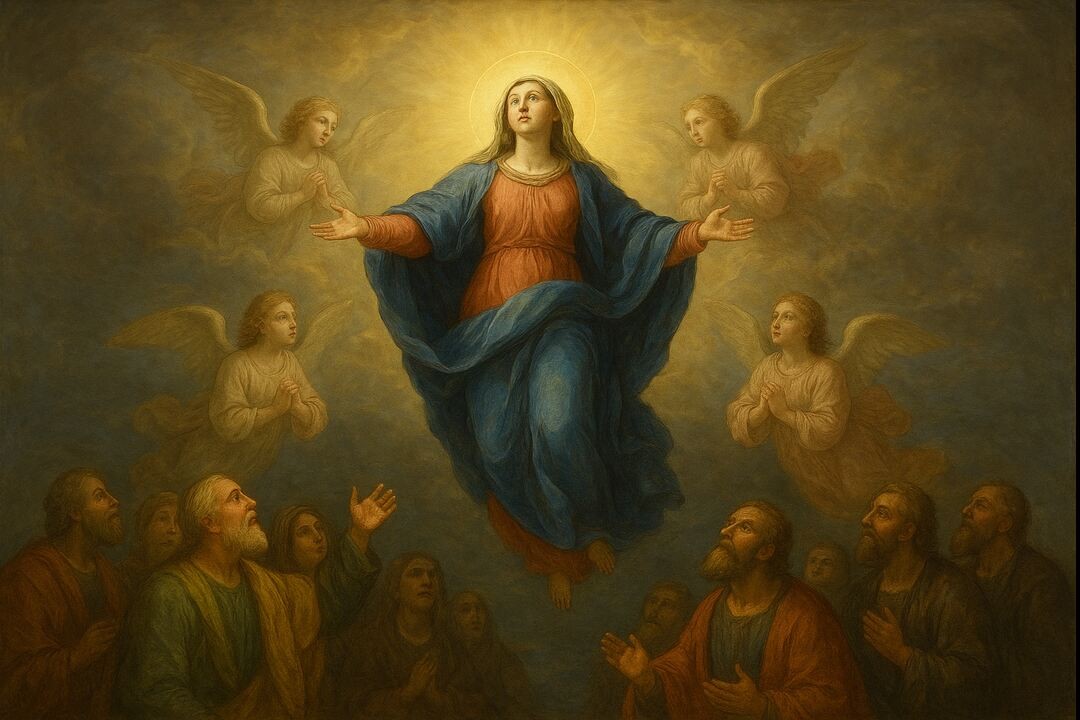Solemnity of the Most Holy Body and Blood of Christ (Corpus Christi) Year C
Readings: Genesis 14:18–20; 1 Corinthians 11:23–26; Luke 9:11–17
INTRODUCTION:
Today, the Universal Church celebrates the Solemnity of the Most Holy Body and Blood of Christ—Corpus Christi. This great feast lifts our hearts and minds to the center of our Catholic faith. The Holy Eucharist, the true Body and Blood, Soul and Divinity of our Lord Jesus Christ. The Eucharist is not merely a symbol or memorial—it is Christ Himself, truly present, who continues to nourish His people with His life-giving Body and Blood.
In this reflection, we explore the Holy Eucharist as our sacrificial Lamb—instituted by Christ to perpetuate the mystery of His death and resurrection. It is through this gift that we are united to His eternal sacrifice and drawn into deeper communion with God and one another.
THE MEANING OF SACRIFICE: A GIFT THAT COSTS SOMETHING
Sacrifice, at its core, is the offering of something valuable for a greater purpose. Biblically, it is an act of worship that expresses both thanksgiving and belonging. To sacrifice is to give up not just what we have, but who we are, offering our lives as gifts to God. It is an outward sign of an inward disposition—a heart consecrated to God in gratitude and trust.
Many people confuse sharing with giving. Sharing is often done from surplus. True giving, however, is sacrificial—it costs us something. As Scripture says, “I will not offer burnt offerings to the LORD my God that cost me nothing” (2 Samuel 24:24). A sacrifice of thanksgiving is not genuine if it comes without any effort or expense.
MELCHIZEDEK: A FORESHADOWING OF CHRIST’S EUCHARISTIC PRIESTHOOD
The first reading introduces us to Melchizedek, king of Salem and priest of God Most High, who offers bread and wine in thanksgiving for Abraham’s victory. His offering is deeply symbolic—a prefiguration of the Eucharistic sacrifice. Christ, the eternal High Priest, would later offer Himself under the form of bread and wine. Not as a symbol, but as a real and efficacious sacrifice for our redemption.
By giving Melchizedek a tenth of everything, Abraham acknowledges the superiority of his priesthood. Of course, this ultimately finds its fulfillment in Jesus Christ, the Priest forever according to the order of Melchizedek.
THE ONE SACRIFICE: FROM THE CROSS TO THE ALTAR

The sacrifice of the Cross (in a bloody manner) and the sacrifice of the Holy Eucharist (in an unbloody manner) are one and the same sacrifice. Only the mode of offering differs. During the Holy Eucharist, the sacrifice of Christ becomes also the sacrifice of the members of His body (the Church). The priest and the victim are the same; only the form differs.
Through the Eucharist, the sacrifice of Christ becomes our own. Our praises, prayers, sufferings, and daily struggles are united to His. As members of His Body, the Church, we are invited to become “living sacrifices” (Romans 12:1)—holy and acceptable to God.
FEEDING THE MULTITUDE: THANKSGIVING AND ABUNDANCE IN THE GOSPEL
In the Gospel reading, Jesus Christ feeds the hungry multitude with five loaves and two fish. But before the miracle, He lifts His eyes to heaven and gives thanks. This moment of thanksgiving (Greek: eucharistia) becomes the doorway to divine multiplication. Christ satisfies not only the physical hunger of the people but also their spiritual longing.
Moreover, this Gospel event mirrors every celebration of the Eucharist. We offer our gifts—no matter how small—and through Christ, they are transformed and returned to us in abundance. We are nourished not just with food, but with the very life of God.
THE EUCHARIST: FOOD FOR THE BODY AND SOUL

Just as the body needs bread and water, the soul needs spiritual nourishment—the Body and Blood of Christ. Jesus says, “I am the Bread of Life. Whoever comes to me shall never hunger, and whoever believes in me shall never thirst” (John 6:35).
Certainly, the Holy Eucharist is the medicine of immortality. When received with faith and a repentant heart, it brings healing, restoration, and eternal life. However, if we neglect the Sacrament of Confession, we risk receiving Christ into a soul that is spiritually sick or dead. Receiving the Eucharist without purification is like eating nutritious food on a poisoned plate. The grace of the Eucharist requires a heart prepared in humility and repentance.
ANAMNESIS: REMEMBERING AND PARTICIPATING IN THE MYSTERY
In the second reading, St. Paul recalls Christ’s own words at the Last Supper, given to him by divine revelation. “This is my body… this cup is the new covenant in my blood.” At every Eucharist, we obey Christ’s command: “Do this in memory of me.” But this remembrance (anamnesis) is more than a recall—it is a participation in the one eternal sacrifice of Christ. We are not spectators; we are partakers.
As we consume the Body and Blood of the Lord, we share in His Divine Nature and are drawn into communion with one another. This is because the Eucharist is the source and summit of our life as Christians.
CONCLUSION:
Out of love, Jesus Christ left us the Holy Eucharist as a visible sacrifice in order to represent continually that which was once accomplished on the Cross and to apply the fruits of it to our souls. Many saints drew their strength from this sacrament, offering their lives as living sacrifices in response to God’s grace. In the same way, we are invited to offer ourselves: our time, talents, and very being—as gifts for the good of others and for the glory of God.
As we hunger for daily bread, may we hunger even more for the Bread of Heaven. In the Holy Eucharist, we receive not just divine nourishment but the very life of God, who empowers us to love, to serve, and to endure. May this solemnity rekindle in us a profound reverence for the Eucharist. Increase a deep desire to live Eucharistic lives—lives poured out in thanksgiving and sacrificial love.
PRAYER
May the Holy Eucharist heal every infirmity troubling your life. Whatever is dead within you, may it be restored to life through the power of Christ’s Body and Blood. May you be empowered to make loving sacrifices for others. In the end, gain eternal life through Jesus Christ our Lord. Amen.
Peace of Christ be with you…
Rev. Fr. Benjamin Okala, C.S.Sp.



